By concentrating power in the hands of the president and granting eternal immunity to former officials, the proposed Constitution will pave the way for acts of corruption, according to criminal lawyer Guerby Blaise
The new constitution of which President Jovenel Moïse dreams imposes an omnipresent president on Haitian citizens. This is, according to criminal lawyer Guerby Blaise, an encroachment of the executive branch on all other powers that are supposed to be independent. The lawyer claims to have identified about fifty articles concentrating power in the hands of the executive.
In addition, if the new charter is officially drafted by the independent advisory committee (CCI), the National Palace’s shadow will hover above the constituents, in the person of Guichard Dore, adviser to the president. This was revealed by a close source of the organization, officially headed by former President Boniface Alexandre, alongside Mona Jean, Louis Naud Pierre, Hérard Abraham and Jean Emmanuel Éloi.
However, during the installation of the CCI, on October 30, 2020, Jovenel Moïse declared “the committee would not receive orders from anyone”. According to our source, Guichard Doré frequently goes to committee meetings to impose the will of the National Palace. Jovenel Moïse’s advisor even participated in correcting the first version of the document which was made public.
Only Mona Jean would have opposed the omnipresence of the one who, in November 2020, during an interview on Magik 9, proclaimed that “the head of state is the head of all other powers”. The social worker argued that she had a reputation to safeguard. Yet, her opinions did not find favor among her peers.
Guichard Dore’s presence is not the only indicator the National Palace’s involvement in the process. The “Diaspora integration for the emergence of a new Haiti” (IDENH) advocates for the participation of the diaspora in the affairs of the country. At the head of this newly created organization, we find Valérie Mazile, the daughter of Yves Mazile, the National Palace’s chief of protocol.
In January 2021, under the auspices of this organization, the Diaspora Congress was held in Port-au-Prince. It took place in the same space where the CCI works at the KINAM hotel. Most participants came from the Dominican Republic and were provided for (transport, hotel and per diem) by the Haitian State. In addition, this delegation was selected by the Consul General of Haiti in Santiago, James Jacques.
In the new constitution, the president plays both the role of head of state and head of government, according to Article 133. He is present everywhere including within the judicial system, the Constitutional Council, the provisional electoral council, the Army and the Superior Court of Auditors.
He designates the Chief of Staff of the Armed Forces of Haiti, the Director General of the Police, among others.
These choices are only subject to review by the National Assembly. If within fifteen days following receipt of the proposed names, the assembly does not examine them or refuse them by a 2/3 majority of the votes cast, these nominations automatically come into effect.
In the Constitutional Court, the president retains the privilege of appointing three of the nine members, and four of the nine judges of the Superior Court of Accounts. As for the Permanent Electoral Council, the Constitution of Jovenel Moïse provides for eleven members, coming from the ten departments and the diaspora. But it is the president who chooses the advisers from a list of three names submitted to him.
While remaining anonymous, a political leader well versed in constitutional matters emphasizes that such an omnipresent president can be nothing other than a dictator with control over everything.
Sociologist and university professor Ilionor Louis, also believes this. He sees “a threat of dictatorship” hanging over the country. Like Louis, the criminal lawyer Guerby Blaise speaks of a “constitution which pollutes democracy in Haiti” since it assigns all the powers in the hands of a single man.
Impunity, referendum …
The constitution proposed by the president enshrines impunity for leaders. The President of the Republic, ministers and secretaries of state, or a deputy may not be subject to legal proceedings even after the end of their mandate or dismissal. However, President Jovenel Moïse is himself accused of corruption by the Superior Court of Auditors.
According to criminal lawyer Guerby Blaise, the cocktail formed by the concentration of power in the hands of the president and the “eternal immunity” reserved for former officials, will pave the way for acts of corruption, influence peddling, and purchases of positions favorable to criminals and traffickers of all kind, in search of an escape route to evade justice.
In addition, if in the Constitution of 1987 the word referendum is written only once, to prohibit it, in the new one it is an opportunity for the citizen to “directly exercise the prerogatives of sovereignty”.
This attachment to the referendum worries the historian Georges Michel, who recalls that in Haiti, referendums have always been used by leaders with a dictatorial inclination and who wish to remain in power.
For him, accepting to return to organizing referendums in the country is to pave the way for each president to change the country’s ruling law as he sees fit.
On Tuesday, April 13, 2021, the United Nations’ integrated office in Haiti expressed on Twitter, some reservations about this referendum.
“At this point, the process is not sufficiently inclusive, participatory or transparent. National ownership of the draft constitution requires the engagement of a wider range of political, and societal groups, including women’s and religious groups, across the country” read a tweet from the official BINUH account.
This lack of inclusivity comes up regularly from those who criticize the process. Some figures in civil society also denounce a project concocted by political leaders without any real involvement from the different sectors of national life.
Our attempts to interview Mona Jean and Louis Naud Pierre on the issue were unsuccessful.
Cover photo: Valérie Baeriswyl

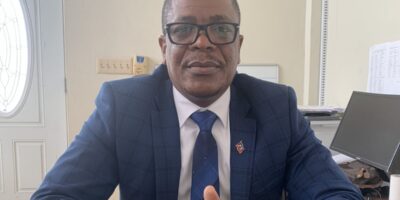
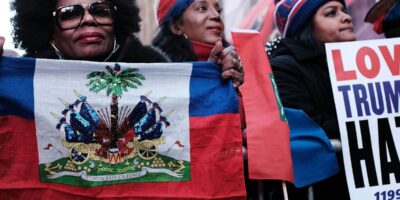
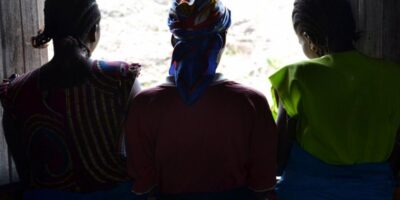

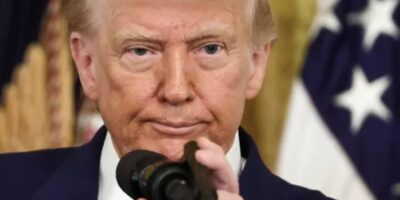
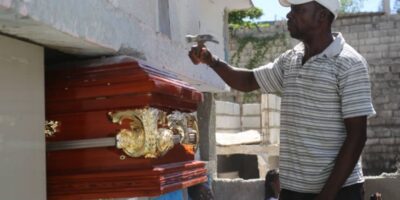
Comments